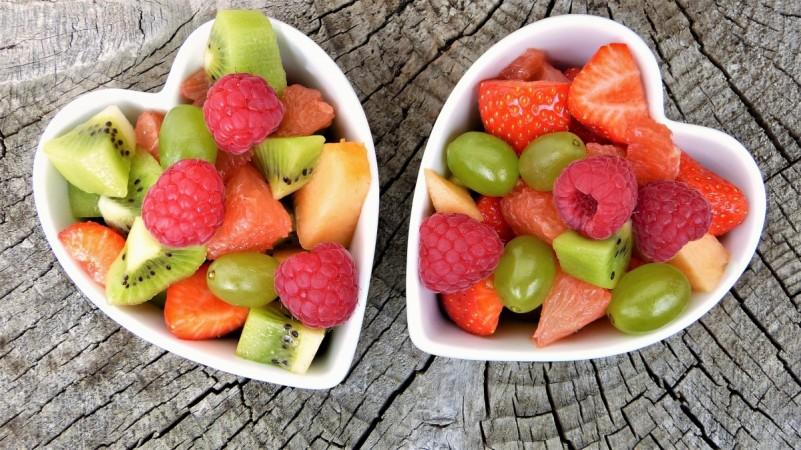![Eating out comes with an additional side of hormone disrupting chemicals called phthalates. [Representational image] dining out](https://data1.ibtimes.co.in/en/full/684535/dining-out.jpg?h=450&l=50&t=40)
Are you a fan of dining out frequently? You might want to reconsider your preferences, found a recent study.
Unknown to the most of us, eating out comes with an additional side of hormone-disrupting chemicals called phthalates – something that is used in making plastic – and higher content of it in the human body has been associated with asthma, breast cancer, type two diabetes and fertility issues in the recent past.
These phthalates are said to be binding agents that are used in food packaging, as well as also in several other products like flooring, adhesive soaps, and even shampoos. Certain forms of the chemical have even been banned from children's products in the US, reported the Guardian.
The study published in Science Direct was able to show that the level of phthalate content in the participants, who had dined out the previous night, was 35 percent higher than the ones that hadn't.
![Study found that people who dined out the previous night had 35 percent higher phthalate content in their system than those who didn't. [Representational image] dining out](https://data1.ibtimes.co.in/en/full/684536/dining-out.jpg?h=450&l=50&t=40)
Lead author Ami Zota, from George Washington University in Washington DC, said: "The main idea is that food that is made in restaurants and cafeterias may be coming into contact with materials containing phthalates in part because some portion of the food is made in decentralized locations."
She also added, "This study suggests food prepared at home is less likely to contain high levels of phthalates, chemicals linked to fertility problems, pregnancy complications, and other health issues. Our findings suggest that dining out may be important, and previously under-recognized, source of exposure to phthalates for the US population."
But how to curb the intake of phthalates?
1. Avoid putting food on plastic
![Avoid putting food on plastic. [Representational image] plastic](https://data1.ibtimes.co.in/en/full/684537/plastic.jpg?h=450&l=50&t=40)
We've already mentioned that phthalates are primarily used in the production of plastic, so avoiding plastic containers all together to store your food might be a good idea. Use glass, stainless steel or even silicone for this purpose.
"Most of the phthalates that are of most concern from a health perspective are plasticizers; they're added to make plastics soft," she Ami said. "They're added to food packaging, they can be in food handling gloves, and they can be found in food tubing."
If at all you must use plastic, keep it out of the microwave or dishwasher, as heating plastic makes it leach more chemicals.
2. Avoid processed foods
![Avoid processed food. [Representational image] processed food](https://data1.ibtimes.co.in/en/full/684538/processed-food.jpg?h=450&l=50&t=40)
Stick to whole foods as much as possible. The mere chance of your food coming in touch with plastic could risk phthalate contamination.
Opt for organic and grass-fed produce instead as they are produced without any contamination with herbicides or pesticides – both of which are loaded with phthalates.
3. Choose home cooked meals
![Cook your meals at home. [Representational image] cooking at home](https://data1.ibtimes.co.in/en/full/684539/cooking-home.jpg?h=450&l=50&t=40)
The study noticed drastically high phthalate content especially in teenagers, which could be credited to their habits of eating out every chance they get.
"The association between phthalate exposure and dining out existed in all age groups, but the magnitude of the association was highest for teenagers," Ami said.
"Certain foods, especially cheeseburgers and other sandwiches, were also associated with increased levels of phthalates, but only if they were purchased from a dining-out establishment."
So go for the easiest alternative - cook your own meals.
4. Proper water filter
![Go for water filtered by high quality filters. [Representational image] water](https://data1.ibtimes.co.in/en/full/684541/water.jpg?h=450&l=50&t=40)
Water supply tainted with industrial waste should lead phthalates to your glass of drinking water. To avoid these, a proper filtration system (slightly more expensive ones, preferably) could filter out the toxins.
5. More plant-based foods, less fatty dairy, and meat

Writing for bewell.com, Maia James says: "People who eat diets rich in plant foods – fruits, vegetables, beans, grains, nuts, and seeds – have lower levels of phthalates in their blood than do people who eat more animal foods."
A fan of whole milk and full-fat dairy herself, she also says: "Substituting out just a few meat- and dairy-heavy meals a week with vegan ones can lower your family's phthalate levels. If you're worried about protein, try beans. For fats, add nuts or avocado. For calcium, choose kale or collard greens."








